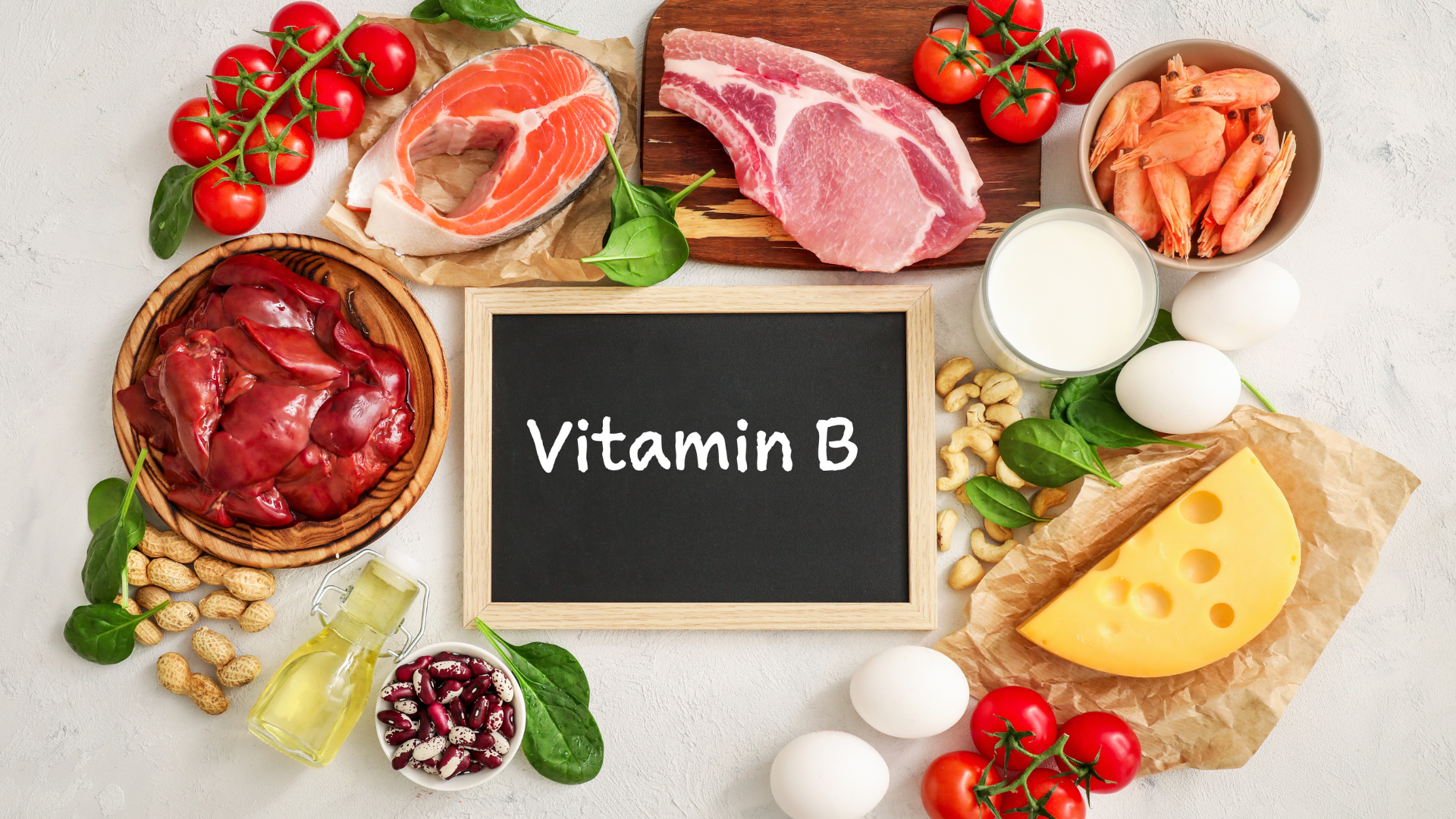B vitamins for dogs: Why they are so important and how you can optimally care for your four-legged friend
B vitamins are essential for your dog's health. They support metabolism, promote nerve function and help maintain skin and coat.
However, normal feeding is not always enough to cover the need for these important nutrients. A deficiency can manifest itself in various symptoms and impair your dog's vitality in the long term.
In this article, you will learn why the vitamin B complex is so important for dogs, what functions vitamin B performs in the body and how you can provide your four-legged friend with the best possible care.

Why are B vitamins so important for dogs?
B vitamins play an essential role in the dog's organism. They are involved in numerous metabolic processes, promote nerve regeneration and support the function of skin, fur and internal organs.
They are particularly important for fat metabolism, liver function and the general vitality of your four-legged friend. If the dog lacks these vital vitamins, this can lead to a number of health problems, including nervousness, skin problems or reduced performance.
A high-quality vitamin B complex can have a preventative effect here.
The most important B vitamins for dogs and their functions
The vitamin B complex includes a group of water-soluble vitamins, each of which performs different functions in your dog's body.
Vitamin B1 (thiamine hydrochloride)
Vitamin B1 is essential for generating energy from carbohydrates. It supports nerve function and helps keep muscles and the heart healthy. A deficiency can result in loss of appetite, tiredness or even seizures.
vitamin B2 (riboflavin)
Vitamin B2 is essential for fat metabolism and plays an important role in cell formation and regeneration. It helps keep skin and fur healthy and ensures efficient energy production. If your dog lacks vitamin B2, symptoms such as skin inflammation or growth disorders can occur.
Vitamin B3 (niacin)
Vitamin B3 supports digestion and promotes skin health. It contributes to nerve regeneration and can inhibit inflammation. A deficiency can lead to skin problems, digestive disorders or lethargy.
Vitamin B5 (calcium D pantothenate)
Vitamin B5 plays an important role in energy metabolism and is involved in the production of hormones. It also supports wound healing and helps the dog to cope better with stress. If the intake is insufficient, this can lead to listlessness and a weakened immune system.
Vitamin B6 (pyridoxine)
Vitamin B6 is crucial for amino acid metabolism and the formation of neurotransmitters. It helps regulate hormone levels and supports the immune system. A deficiency often manifests itself in muscle twitching, irritability or a weak immune system.
Vitamin B7 (biotin)
Vitamin B7 is essential for coat and skin health. It ensures shiny fur, strong claws and resilient skin. Biotin deficiency can manifest itself in the form of skin rashes, brittle claws or increased hair loss.
vitamin B9 (folic acid)
Vitamin B9 supports cell division and blood formation. It is particularly important for the growth and development of tissues. If the dog lacks it, it can suffer from anemia or growth disorders.
Vitamin B12 (cyanocobalamin)
Vitamin B12 is essential for nerve function and blood formation. It ensures healthy cell division and supports the immune system. A deficiency can manifest itself in the form of tiredness, loss of appetite or digestive problems.
How can you optimally supply your dog with B vitamins?
The best way to provide your dog with sufficient B vitamins is to feed him a balanced diet. Many animal foods such as liver, meat, eggs and fish contain high amounts of B vitamins. However, at certain stages of life, in cases of increased stress or illness, it may be necessary to use additional supplementary feed.

Vitamin B complex preparations are available in various forms such as tablets, capsules or powder. These can easily be administered via food and enable a targeted supply of all important B vitamins. The additional administration can be particularly useful for older dogs or dogs with digestive problems in order to prevent deficiency symptoms.
Symptoms of Vitamin B Deficiency and Prevention
A deficiency in B vitamins can manifest itself in various ways and have a negative impact on your dog's health.
Because B vitamins play a central role in metabolism, nerve function and skin health, deficiencies can cause both physical and behavioral changes.
Typical signs of a vitamin B deficiency are:
coat problems and skin irritations
Dull, brittle fur, increased hair loss or inflamed skin areas can indicate a vitamin B deficiency. Vitamin B7 (biotin) in particular is essential for the health of dogs' skin and fur.
loss of appetite and digestive problems
If the dog lacks important B vitamins, this can affect digestion and lead to nausea, vomiting or diarrhea. In severe cases, it can lead to reduced nutrient absorption, which in turn leads to weight loss.
muscle weakness and tremors
Since the vitamin B complex plays a crucial role in muscle and nerve function, a deficiency can lead to muscle weakness, tremors or even coordination problems. Dogs often appear weak or unsteady on their feet.
nervousness or lack of motivation
An imbalanced vitamin B level can also affect behavior. Dogs can either be overly nervous and anxious or noticeably lethargic and listless. Vitamin B1 and vitamin B6 in particular are important for healthy nerve function and the emotional well-being of your dog.
Increased susceptibility to infection
B vitamins help strengthen the immune system. A persistent deficiency can make your dog more susceptible to infections and cause diseases to resolve more slowly.
How to prevent vitamin B deficiency
To ensure that your dog is getting enough B vitamins, you should ensure that the diet is balanced and rich in nutrients. High-quality foods with natural sources of vitamin B such as liver, meat, fish and eggs can help meet the needs.
In certain situations – for example, older dogs, pregnant dogs, dogs with chronic illnesses or those under high physical strain – additional intake of a high-quality vitamin B complex preparation may be useful.
Supplementary feed in the form of tablets, capsules or powder can help to specifically compensate for a deficiency and prevent it in the long term.
If your dog shows symptoms of a vitamin B deficiency, you should not hesitate to consult a veterinarian. Early diagnosis and targeted nutritional supplements can help prevent more serious health problems and restore your four-legged friend's vitality.
Which dosage form is best? Capsules, tablets or powder?
Depending on your dog’s preferences, you can choose between different forms of administration.
Many dogs readily take tablets with their food, while others are more sensitive and capsules or powder should be preferred. Powder is easy to sprinkle over food and is particularly suitable for dogs who have difficulty with tablets.
Liquid supplements offer another alternative, as they can easily be mixed into the food. It is important that you always pay attention to the correct dosage and consult a veterinarian if necessary.
Side effects and correct dosage
B vitamins are water-soluble, so an overdose is not a problem in most cases. Excess amounts are simply excreted in the urine.
However, in individual cases, too high a dosage can lead to mild digestive problems or restlessness. It is therefore advisable not to exceed the recommended amount and always to use high-quality preparations with clear dosage instructions.
Conclusion: Why your dog and cat benefit from B vitamins
B vitamins are essential for your dog's well-being and health. They support the metabolism, strengthen the nervous system, promote healthy skin and ensure a shiny coat. A sufficient supply through food or targeted supplementary feed helps to ensure that your dog stays active, healthy and full of energy.
Look for high-quality products with good composition and positive reviews to achieve the best possible effect.














